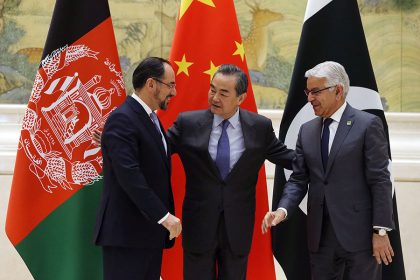Last week saw international headlines clambering for the most outrageous titles to represent what they deemed a ‘miraculous breakthrough’ in the realm of global diplomacy. The 2025 ceasefire agreement between Hamas and Israel appeared to be a fresh start after fifteen months of the most documented (and glamorised) human genocide in the history of war. A few hours after the agreement’s finalisation, though, Israel upheld its pattern of hypocrisy by bombing several Palestinian territories and totalling a death toll above thirty. The question that remains is: what tricks does Israel have up its sleeve this time, and have we learnt nothing these past months to do better than trusting a country whose imperialist legacy is built on the eradication of another race?
While a broad outline of the deal was announced by Qatar, which brokered it along with the United States and Egypt, final plans remain uncertain as the world looks on. The deal in question, being hailed as a necessary pause in the violence that has ravaged Palestinian territories, unfortunately appears to be another iteration of superficial dialogue. Underneath this rhetoric of peace and stability (full global cooperation, as they put it), there is a stark reality that shines through. The ceasefire plan is another chapter in the relentless oppression of the Palestinian people, engineered more towards suppressing their voices and dehumanising their suffering than actually radically tackling the root cause of the conflict in the first place: Zionism, now a favoured guest at most, if not all, tables.

If we overlook the passivity of the agreement itself and focus on the terms instead, there is a lot that mirrors previous agreements, with the language used especially to appease international observers rather than ensure genuine change. The deal itself indicates provisions for the cessation of airstrikes by Israel and rocket fire by Hamas, the promise to not only reopen border crossings but also allow humanitarian aid to enter Gaza. It is important to note, though, that scarcely any of these terms are new; they have been manufactured and regurgitated on previous occasions countless times and have, as you’d expect, failed to bring the stability the Middle East deserves.
The humanitarian aid in question is nothing but another tool of control. The kind of stranglehold Israel exercises over the Gazan territories practically ensures that the aid influx is operated on its own terms, a sick means of weaponising basic human necessities. On one hand, the language used in the agreement might hint at a loosening of these restrictions, but historical evidence suggests otherwise. Past agreements are an example of the way Israel has imposed arbitrary delays and total embargoes on aid delivery, exacerbating Palestinian suffering.

Beyond the aid itself, it is naive to not consider Israel’s own history with peace agreements and the extent to which they’ve been respected. The futility of these deals, whether in 2014 or 2021, was evident in the continuous expansion of illegal settlements in the West Bank and East Jerusalem, actions that outrightly contradict international laws. It is therefore not wrong to suggest that perhaps Israel ought to be criminalised and consequently penalised on its strongest suits: gross human violence and arms embargo, which is where the role of the United States comes in.
When long-retiring President Biden was asked about the true genius behind this deal, he appeared to be in the delicate balance between offended and constipated. That is a valid reaction for someone whose entire term has been focused on prioritising arms aid to the IDF, despite the not-so-comfortable living conditions in the United States itself. It is also understandable, with the kind of chokehold AIPAC has on American politics, that the Biden administration is annoyed at the unfair distribution of credit. That is a commie joke if I ever saw one.

Beyond the obvious hijack of the global scene, with the United States ultimately appearing more Israeli than the multiracial Israelis themselves, the way it has exploited previously ostentatious institutions like the United Nations and the International Court of Justice ought to be a lesson in the credibility of these noble establishments. The repeated use of veto power to subdue a potential ceasefire in Gaza, and the Biden administration’s diction of a “two-state solution,” ring hollow against this backdrop, as its actions actively reinforce conditions that make such a solution practically impossible.
However, the fundamental flaw of the 2025 ceasefire agreement is its failure to address the structural barriers that perpetrate this ethnic cleansing in the first place. The occupation of Palestinian territories, the bombing of Gaza, the blockade, and systematic discrimination against Palestinians remain untouched, with the agreement focusing on the symptoms that are very much likely to resurrect.

The 2025 agreement, therefore, is far from being a milestone in international peace efforts. It is a symbol of the failure of the global community to address systemic violence and selective accountability. Until the Palestinian lives remain unavenged, peace will only be a distant mirage, as the West composes another hideous song of justice on the carcass of human dignity.













